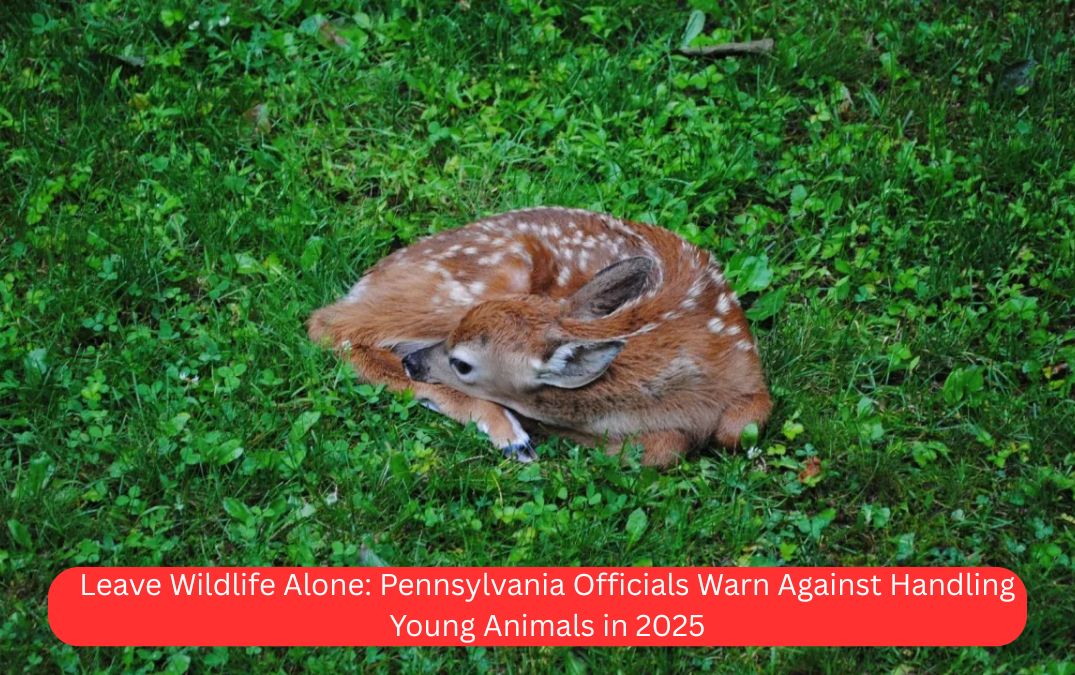As warmer weather draws more people outdoors, Pennsylvania officials are reminding residents not to approach or handle young wildlife. Despite appearing abandoned, these animals are typically left in safe spots by their nearby parents.
Interfering with wild animals can lead to legal penalties, safety risks, and unintended harm to the animals themselves.
What Happened
The Pennsylvania Game Commission (PAGC) has issued a public advisory urging residents to avoid contact with baby animals such as fawns, raccoon cubs, and chicks. This annual reminder comes during the spring and summer months, when wildlife sightings increase.
Key Details
- Young wildlife often appear alone but are not abandoned.
- Parents usually leave their offspring in safe spots while foraging nearby.
- Intervening can harm the animal’s survival and behavior.
Matthew Schnupp, Director of the Bureau of Wildlife Management, emphasized that most animals are not in distress and do not need human help.
“The best approach when encountering any wildlife is to simply let them be,” said Schnupp.
Reactions or Statements
Schnupp reiterated that human intervention often does more harm than good.
Even with the best intentions, picking up or moving wildlife can result in:
- The animal losing its fear of humans
- Long-term behavioral issues
- Aggression toward humans as the animal matures
A past case involved a family that raised a fawn until it became a yearling buck. The deer later attacked the family, causing serious injuries.
Investigation or What’s Next
The Pennsylvania Game Commission will continue public outreach efforts throughout the spring and summer.
Officials warn that removing or keeping wild animals is illegal under state law. Penalties for possession or disturbance can result in fines up to $1,500.
Residents are encouraged to report unusual wildlife behavior to the PAGC but not to handle or relocate any animal themselves.
FAQs
Q: What should I do if I find a baby animal alone?
A: Leave it where it is. Its parent is likely nearby.
Q: Is it illegal to take in wild animals in Pennsylvania?
A: Yes. Keeping or disturbing wildlife without a permit can result in fines up to $1,500.
Q: Can baby animals survive without human help?
A: In nearly all cases, yes. Their survival chances are best when left in the wild.
Q: Are there health risks from handling wildlife?
A: Yes. Wild animals can carry parasites like fleas, ticks, and lice, and even transmit diseases.
Q: Who should I call if I think an animal is truly abandoned or injured?
A: Contact the Pennsylvania Game Commission or a licensed wildlife rehabilitator.
Summary / Final Takeaway
Pennsylvanians are urged to admire wildlife from a distance this spring and summer. Most young animals are not abandoned, and human contact can have dangerous consequences.
If you care about wildlife, the best way to help is to leave them alone.












